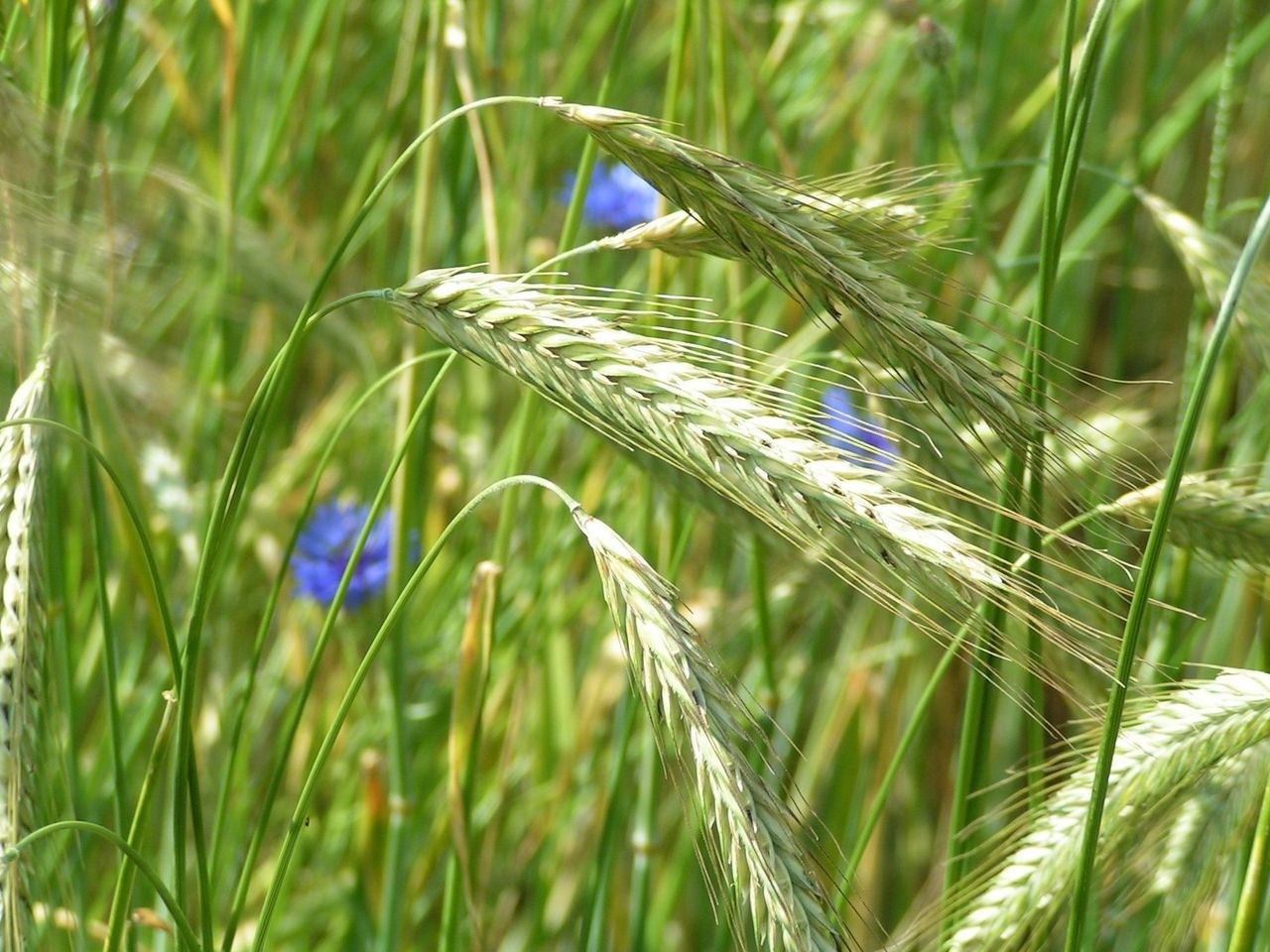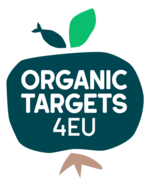Project
OrganicTargets4EU - scenarios for boosting organic farming

Transformation scenarios for boosting organic farming and organic aquaculture towards the Farm-to-Fork targets
The EU’s Farm-to-Fork Strategy set a target of 25% of EU agricultural land to be organic by 2030, or three times the area in 2019. Can this be achieved? If so how, and what are the consequences for farms and food businesses?
Background and Objective
The overall objective of OrganicTargets4EU is to support the achievement of the organic Farm to Fork Strategy targets. Based on an assessment of key drivers and lock-ins affecting the development of the organic sector, the project will set-up a multi-actor process to create and analyse a range of possible scenarios for achieving the targets. The project is structured into two strands, which run from start to finish:
Strand 1: Production and Markets
This strand will analyse where increases in organic farmland can be achieved, and the socio-economic impacts of these increases at the level of primary production, value chains and markets, as well as on the related F2F targets of reducing fertiliser, pesticide and antibiotic use. The project will also provide evidence on the mechanisms that can drive demand for organic food and the impact of changing diets and food waste reduction on mitigating the reduced yields from organic production.
Strand 2: Knowledge and Innovation
This strand will work towards an innovation ecosystem fit for achieving the organic targets, recognising that the scale of the expansion envisaged will require a transformational approach to knowledge and innovation systems for agriculture and aquaculture. It will identify knowledge gaps and opportunities to strengthen advisory services and will build capacity and stimulate exchange of scientific and practice-oriented knowledge. Building on the CORE Organic network (CO) of research funding bodies, it will increase and coordinate organic R&I investment.
Target Group
Agricultural policy, Agriculture, Food industry, Advisory services, Researchers
Our Research Questions
The Thünen Institute will lead the tasks relating to
- comparison of future policies (CAP Strategic Plans and Organic Action Plans) with previous support for organic farming, building on previous work (among other thingsThünen Working Paper 200)
- modelling the production impacts of organic farming at EU level using the CAPRI model, developed to better reflect the characteristics and constraints of organic farming
- analysing the policy challenges and options to deliver the EU's organic targets by 2030, including the preparation of specific policy recommendations and briefing documents to support them
- co-ordinating the interactions beween workpackages focused on the production and market aspects of organic farming
Preliminary Results
Results of the first working package will soon be published here.
Links and Downloads
Project website: www.organictargets.eu
Farm to Fork Strategy: food.ec.europa.eu/horizontal-topics/farm-fork-strategy_en
EU-Cordis project information: https://cordis.europa.eu/project/id/101060368
Thünen-Contact

Involved Thünen-Partners
Involved external Thünen-Partners
-
The International Federation of Organic Agriculture Movements EU (IFOAM EU)
(Brüssel, Belgien) - Forschungsinstitut für biologischen Landbau (FiBL)
(Frick, Schweiz) - Aarhus University
(Aarhus, Tjele, Dänemark) -
ÖMKi Hungarian Research Institute of Organic Agriculture
(Budapest, Ungarn) -
Aristotle University of Thessaloniki / ARISTOTELIO PANEPISTIMIO THESSALONIKIS
( Thessaloniki, Griechenland) -
Institut national de recherche pour l’agriculture, l’alimentation et l’environnement (INRAE)
(Paris, Toulouse, Montpellier, Avignon, Ivry-sur-Seine, Clermont-Ferrand, Rennes, Thiverval-Grignon, Dijon, Orleans, Bordeaux, Pierroton, Frankreich) - ITAB - L’Institut Technique de l’Agriculture Biologique
(Paris, Frankreich) -
Università Politecnica delle Marche
(Ancona, Italien) - Naturland - Verband für ökologischen Landbau e.V.
(Gräfelfing, Deutschland) -
COISPA - Coispa Technologica and Ricerca Scrl
(Bari, Italien) -
Centro Internazionale di Alti Studi Agronomici Mediterranei / International Center for Advanced Mediterranean Agronomic Studies (CIHEAM-Bari)
(Valenzano, Italien) -
Consulai - Consultoria Agro-industrial LDA
(Beja, Portugal) -
FiBL Europe - Forschungsinstitut für Biologischen Landbau in Europa
(Brüssel, Belgien) -
Landbrug & Fodevarer F.M.B.A. / Danish Agriculture & Food Council
(Aarhus, Kopenhagen, Dänemark) -
Landwirtschaftskammer Niederösterreich
(St. Pölten, Österreich) -
Universitatea Spiru Haret / Universität Spiru Haret
(Bukarest, Rumänien) -
IDDRI - Fondation Institut de Recherche pour le development durable et les relations internationales / Institute for Sustainable Development and International Relations
(Paris, Frankreich)
Funding Body
-
European Union (EU)
(international, öffentlich)
Duration
9.2022 - 2.2026
More Information
Project status:
ongoing
Publications to the project
- 0
Lampkin N, Lembo G, Rehburg P (2024) Deliverable 1.2 : Assessment of agricultural and aquaculture policy responses to the organic F2F targets. xiii, 128 p
- 1
Lampkin N (2023) Policy support for organic farming in the European Union - past achievements and future challenges [online]. In: 97th Annual Conference of the Agricultural Economics Society, University of Warwick, United Kingdom, 27-29 March 2023., zu finden in <https://orgprints.org/id/eprint/46036/> [zitiert am 30.05.2023]
- 2
Lampkin N, Sanders J (2023) Ziele für den ökologischen Landbau in Europa: Folgen und Maßnahmen. In: Bibic V, Schmidtke K (eds) One step ahead - einen Schritt voraus! : Beiträge zur 16. Wissenschaftstagung Ökologischer Landbau, 07.-10. März 2023, Frick (CH), FiBL Campus. 1. Auflage. Berlin: Verlag Dr Köster, pp 608-611
OrganicTargets4EU is funded by the European Union (Grant no. 101060368) and by the Swiss State Secretariat for Education, Research and Innovation (SERI) (Grant no. 22.00155). Views and opinions expressed are however those of the author(s) only and do not necessarily reflect those of the European Union, European Research Executive Agency (REA) or Swiss State Secretariat for Education, Research and Innovation (SERI). Neither the European Union nor any other granting authority can be held responsible for them.





![[Translate to English:] Logo des Bundesministerium für Ernährung und Landwirtschaft](/media/allgemein/logos/BMEL_Logo.svg)